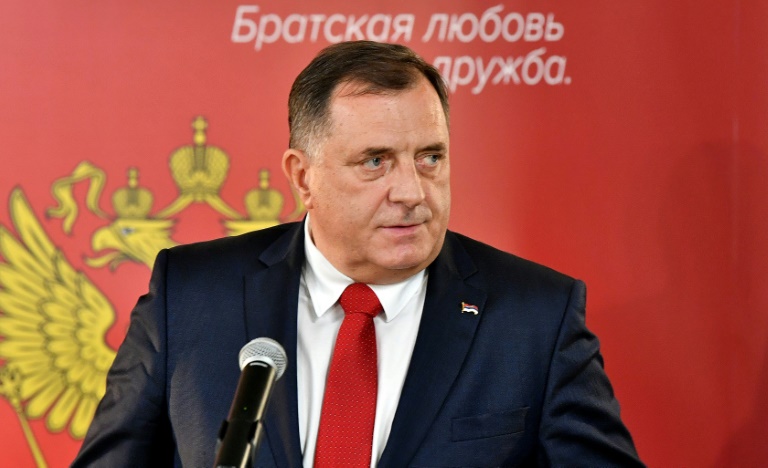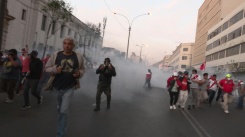The United States on Wednesday slapped sanctions on Bosnian Serb leader Milorad Dodik and a television network close to him, accusing him of threatening a fragile 25-year-old peace with his secessionist moves.
“Milorad Dodik’s destabilizing corrupt activities and attempts to dismantle the Dayton Peace Accords, motivated by his own self-interest, threaten the stability of Bosnia and Herzegovina and the entire region,” Brian Nelson, the under secretary of the treasury for terrorism and financial intelligence, said in a statement.
Dodik, a former social democrat turned nationalist with ties to Russia, has increasingly made good on longstanding secession threats of the Republika Srpska, the Bosnian Serb entity created under the US-brokered 1995 Dayton Accords that ended the former Yugoslav republic’s brutal war.
Calling the united Bosnia a failure, Dodik has moved to withdraw Bosnian Serbian institutions including the army, the judiciary and the tax system from central authority.
“His divisive ethno-nationalistic rhetoric reflects his efforts to advance these political goals and distract attention from his corrupt activities,” a Treasury Department statement said.
His actions “threaten the stability, sovereignty and territorial integrity” of Bosnia and “undermine the Dayton Peace Accords, thereby risking wider regional instability,” it said.
The US sanctions will block any assets Dodik may have under US jurisdiction and criminalize transactions with him under US law.
Also slapped with sanctions was Alternativna Televizija, a prominent television network in the Bosnian Serb stronghold of Banja Luka that is owned by a company linked to Dodik’s son.
The sanctions show the growing worry in the West that Bosnia’s complicated peace accord risks unraveling after Dodik ignored warnings from the United States and European leaders to give up his secessionist plans.
Dodik met last month in Moscow with Russian President Vladimir Putin, appearing to indicate support for his moves by the Serbs’ historic ally.
The Dayton Accords ended a war that claimed some 100,000 lives, brought accusations of genocide against Bosnian Serb forces and traumatized a post-Cold War Europe that had hoped the continent had finally turned the page on centuries of bloodletting.
Brokered at the Dayton air base in Ohio by the flamboyant late US diplomat Richard Holbrooke, the accord effectively split the country in two, giving one half to the Bosnian Serbs and the other to a Muslim-Croat federation.
A dizzying bureaucracy links the two sides in a unitary state that has succeeded in preventing any widescale return to intercommunal violence.








